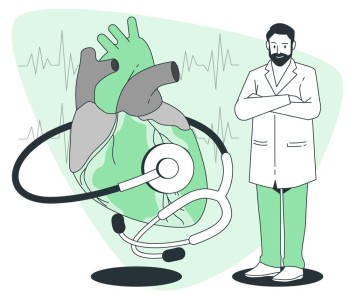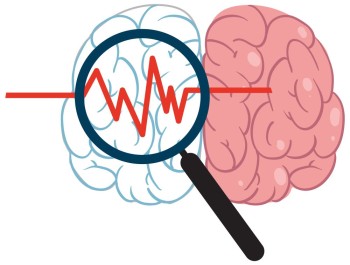
An MRI Shoulder Scan in Thane West is a non-invasive procedure to diagnose shoulder issues.
MRI Shoulder Scan with Cost in
Thane West, Thane in Detail
Introduction
MRI
(Magnetic Resonance Imaging) is a powerful tool used in modern diagnostics to
create detailed images of the body’s internal structures. When it comes to
shoulder pain or injury, an MRI Shoulder Scan plays a crucial role in
identifying the cause and helping doctors develop a treatment plan. This
article will take you through everything you need to know about an MRI Shoulder
Scan in Thane West, including its cost, preparation, and more.
What
is an MRI Shoulder Scan?
An
MRI Shoulder Scan is a non-invasive imaging technique used to capture
high-resolution images of the shoulder joint. It uses magnetic fields and radio
waves to create cross-sectional images of bones, muscles, ligaments, and
tendons, helping doctors detect abnormalities that may not be visible through
other imaging methods like X-rays or CT scans.
When
Do You Need an MRI Shoulder Scan?
MRI
Shoulder Scans are typically recommended for individuals experiencing
persistent shoulder pain, stiffness, or discomfort. Common conditions that
require an MRI scan include:
1.Rotator cuff injuries
2.Shoulder dislocations
3.Tendonitis
4.Frozen shoulder
5.Labral tears
6.Arthritis
If your doctor suspects a soft tissue injury, torn ligaments, or any other
issue that can’t be confirmed with an X-ray, they may order an MRI.
How
Does an MRI Shoulder Scan Work?
MRI
scans rely on powerful magnets and radiofrequency waves to produce detailed
images. The machine generates a magnetic field that aligns the protons in your
body. When these protons are exposed to radio waves, they emit signals that the
machine uses to create detailed images of your shoulder.
The images provide clear and comprehensive views of soft tissues, bones, and
ligaments, which is especially useful for diagnosing complex shoulder issues.
Types
of MRI Scans for the Shoulder
1.
MRI Without Contrast: This is the standard MRI scan where images
are taken without the use of any contrast dye. It’s typically enough for
diagnosing many common shoulder issues.
2. MRI With Contrast: In some cases, a contrast agent (gadolinium) is
injected into your bloodstream to highlight certain areas in your body,
providing more detailed images. This is especially useful in detecting
abnormalities like tumors or specific joint issues.
Benefits
of MRI Shoulder Scans
Non-invasive: The
MRI scan does not require any surgical incisions or invasive procedures.
Highly Detailed Imaging: MRI provides the clearest images of soft
tissues, making it superior to X-rays or CT scans when diagnosing shoulder
problems.
No Radiation Exposure: Unlike X-rays, MRI scans do not use ionizing
radiation, making them safer for regular use.
Risks
and Limitations of an MRI Shoulder Scan
Although
MRI is generally safe, there are a few risks to consider:
Claustrophobia: The narrow space inside the MRI machine may make some
patients feel anxious or claustrophobic.
Metal Implants: Individuals with metal implants, pacemakers, or shrapnel
in their bodies may not be eligible for an MRI due to the magnetic field.
Contrast Allergies: In rare cases, patients may have allergic reactions
to the contrast dye used during the scan.
Preparation
for an MRI Shoulder Scan
Before
the scan, it’s essential to follow certain guidelines:
Remove metal objects: Jewelry, watches, and any metal accessories should
be removed.
Fasting: If you're undergoing an MRI with contrast, your doctor may ask
you to avoid eating or drinking for a few hours before the procedure.
Medical History: Inform the radiologist if you have any implants, metal
devices, or are pregnant.
What
Happens During the MRI Shoulder Scan?
You
will lie down on the MRI table, and your shoulder will be positioned under the
scanner.
The table slides into the MRI machine, where you’ll need to remain still for
the duration of the scan (typically 30-45 minutes).
You may hear loud thumping or buzzing sounds, but earplugs or headphones will
be provided to reduce discomfort.
What
to Expect After the MRI Shoulder Scan?
Once
the scan is complete, you can usually resume your regular activities
immediately unless instructed otherwise by your doctor. If a contrast dye was
used, drinking plenty of water helps flush it out of your system.
How
to Read MRI Shoulder Scan Results?
The
images from the MRI scan will be reviewed by a radiologist, who will interpret
the findings and send a report to your doctor. Your doctor will explain the
results and suggest the next steps, whether it’s treatment or further testing.
Cost
of MRI Shoulder Scan in Thane West, Thane
The
cost of an MRI Shoulder Scan in Thane West can vary depending on several
factors:
Type of MRI (with or without contrast)
Diagnostic centre you choose
Technology used during the scan
Typically, the cost ranges between ₹3,500 and ₹8,000. Scans with contrast are
generally on the higher end of this price spectrum.
Top
MRI Centres in Thane West, Thane
1. PC Diagnostics (Thane West)
2. Invicta Diagnostics (Thane West)
3. Pulse Advance Scan Centre (Thane West)
4. Jupiter Hospital (Thane)
These centres are well-equipped and offer advanced MRI imaging services.
How
to Book an MRI Shoulder Scan in Thane West
Booking
an MRI scan is straightforward. You can:
Call the diagnostic centre directly (8530309333).
Book through online medical platforms (Mdscans.com).
Consult with your doctor, who can recommend and schedule the appointment for
you.
Best MRI Scan Centre for
Shoulder in Thane West, Thane
For
shoulder MRI scans in Thane West, reputed centres like PC Diagnostics, Invicta
Diagnostics, Jupiter Hospital, and Pulse Advance Scan Centre offer high-quality
services with advanced imaging technology. These centres are known for their
experienced radiologists, state-of-the-art MRI machines, and patient-friendly
environments. They ensure accurate diagnostic imaging, quick report turnaround,
and prioritize patient comfort, making them top choices for shoulder MRI scans
in the area.
Low-Cost
MRI Scan Centre for Shoulder in Thane West, Thane
Thane
West offers several affordable MRI scan centres for shoulder imaging, providing
quality services at competitive rates. These centres are equipped with modern
MRI machines and staffed by experienced technicians, ensuring accurate
diagnostic results. Some popular options include diagnostic centres near major
hospitals or commercial areas in Thane West. It's advisable to compare pricing,
check reviews, and inquire about appointment availability before booking.
MRI
Scan Centre for Shoulder Near Thane West
If
you're looking for an MRI scan centre for shoulder imaging near Thane West,
there are several options offering advanced diagnostic services. These centres
are equipped with modern MRI machines that provide high-resolution images,
assisting doctors in diagnosing shoulder injuries, joint issues, or soft tissue
damage. Most centres also offer appointments via call or online booking, with
trained technicians and radiologists ensuring a comfortable and efficient
scanning experience.
Conclusion
An
MRI Shoulder Scan is a vital tool in diagnosing complex shoulder issues, from
soft tissue injuries to bone abnormalities. With its non-invasive nature and
detailed imaging capabilities, it plays a key role in helping doctors create
precise treatment plans. In Thane West, the scan is accessible at several
top-rated diagnostic centres with a range of affordable pricing options.
FAQs about MRI Shoulder Scan
with Price in Thane West, Thane
Q1.
Is MRI shoulder scan painful?
No,
the scan itself is painless. However, lying still for an extended period may
cause mild discomfort for some individuals.
Q2. How long does the scan take?
An MRI shoulder scan typically lasts 30 to 45 minutes.
Q3. Can I undergo an MRI shoulder scan if I have a pacemaker?
MRI may not be safe for individuals with certain types of pacemakers.
Consult your doctor before scheduling the scan.
Q4. How soon will I get the results?
The results are usually available within 24 to 48 hours.
Q5. Are there any alternatives to an MRI shoulder scan?
Yes, depending on your condition, your doctor may suggest an X-ray, CT
scan, or ultrasound as an alternative.
(0)
Login to continue



